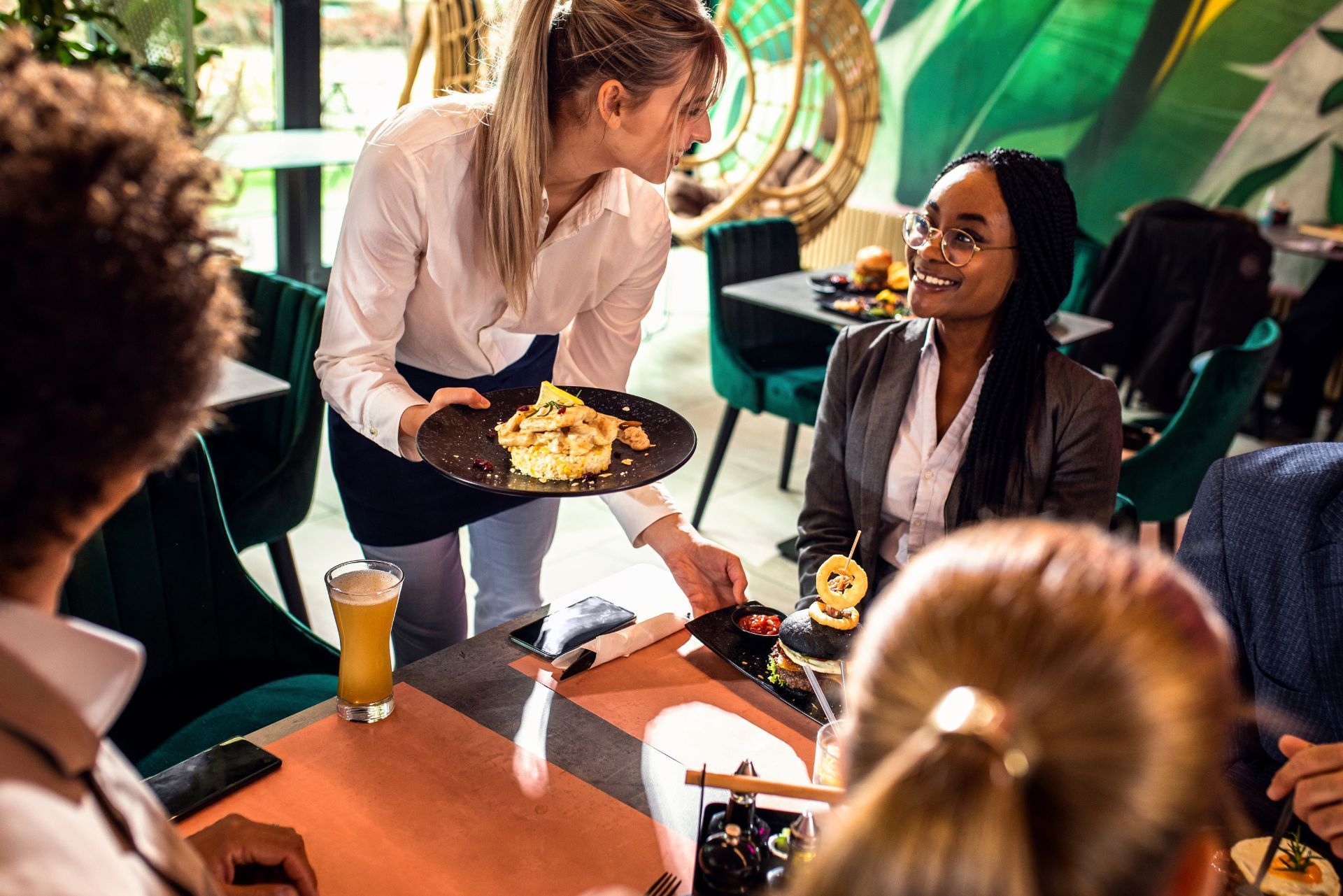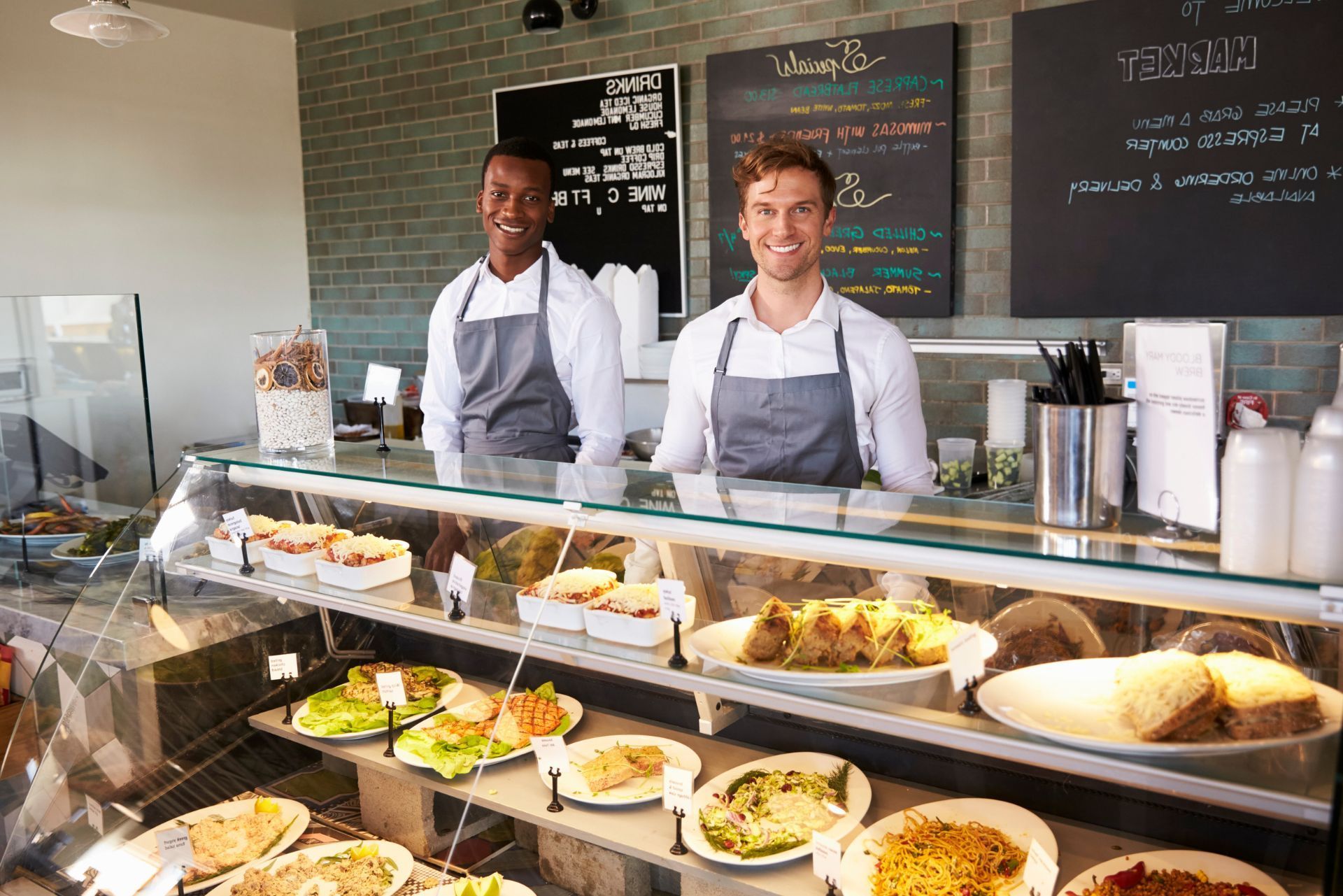Top 3 Recommended Policies

The quick service restaurant (QSR) industry in Colorado is a vibrant and essential part of the state's economy, employing over 303,000 individuals and representing 11% of the labor force. This sector has seen significant growth and evolution, especially in the wake of recent challenges and technological advancements. For restaurant owners, understanding the nuances of insurance coverage tailored to quick service operations is critical to safeguarding their business, employees, and customers.
In this comprehensive guide, we will explore the key aspects of Colorado quick service restaurant insurance, including the types of coverage available, regulatory updates, industry challenges, and how technology is shaping the landscape. Whether you’re a seasoned restaurateur or just starting out, this article will provide valuable insights to help you make informed decisions about protecting your business.
For more detailed industry statistics, you can visit the Colorado Restaurant Association’s official statistics page.
The Importance of Insurance for Quick Service Restaurants in Colorado
Quick service restaurants operate in a fast-paced environment with unique risks that differ from other types of dining establishments. From slip-and-fall accidents to food safety concerns and employee injuries, the potential liabilities are numerous. Insurance is not just a regulatory requirement but a vital component of risk management that helps restaurants stay resilient amid unforeseen events.
Colorado’s quick service restaurants face a complex set of challenges, as described by Denise Mickelsen of the Colorado Restaurant Association, who characterizes the situation as "death by a thousand cuts." These challenges include rising operational costs, labor shortages, and shifting consumer behaviors. Insurance policies tailored to this industry help mitigate financial risks stemming from these multifaceted pressures. Additionally, the unpredictable nature of Colorado's weather can pose further risks, such as damage from heavy snow or hail, making it even more crucial for restaurant owners to have comprehensive coverage that protects against natural disasters.
Key Insurance Coverages for Quick Service Restaurants
Understanding the specific types of insurance coverage available can help QSR operators choose the right protection. Common policies include:
- General Liability Insurance: Covers third-party bodily injury and property damage claims, such as customer slip-and-fall accidents on your premises.
- Property Insurance: Protects the physical assets of the restaurant, including the building, equipment, and inventory, against risks like fire or theft.
- Employment Practices Liability Insurance (EPLI): Shields the business from claims related to workplace discrimination, harassment, or wrongful termination.
- Liquor Liability Insurance: Essential for establishments that serve alcohol, covering claims related to intoxication or alcohol-related incidents.
- Workers’ Compensation: Covers medical expenses and lost wages for employees injured on the job, a critical protection given the physical nature of restaurant work.
- Hired and Non-Owned Auto Insurance: Important for restaurants offering delivery services, covering vehicles used for business purposes that are not owned by the company.
Specialized insurance providers in Colorado, such as those detailed by the
Orcutt Group, offer tailored packages that bundle these coverages to meet the specific needs of quick service restaurants. These providers often understand the local market dynamics and can offer insights into emerging risks, such as those related to cyber threats or the growing demand for online ordering and delivery services. As technology continues to evolve, having the right insurance coverage becomes even more critical in safeguarding against potential data breaches or delivery mishaps that could jeopardize a restaurant's reputation and financial stability.

How Regulatory Changes Affect Quick Service Restaurant Insurance
The COVID-19 pandemic brought significant regulatory shifts that impacted how insurance is managed in the restaurant industry. One notable change in Colorado was the allowance by the Division of Insurance for restaurants to use personal auto insurance for food delivery services. This regulatory update helped reduce red tape and insurance delays, enabling quick service restaurants to adapt swiftly to the surge in delivery demand during the pandemic.
This flexibility remains crucial as delivery continues to be a major component of quick service restaurant operations. Understanding such regulatory nuances can help restaurant owners avoid gaps in coverage and ensure compliance with state requirements. Moreover, as the landscape of dining continues to evolve, staying informed about these changes can empower restaurant owners to make strategic decisions that enhance their operational resilience and customer satisfaction.
For more information on these regulatory updates, visit the Colorado Division of Insurance’s official release.
Impact on Delivery and Liability
Delivery services introduce additional risks, including vehicle accidents and food safety concerns during transit. The availability of hired and non-owned auto insurance policies addresses these risks by covering vehicles used for deliveries that the restaurant does not own. This coverage complements the regulatory allowances and ensures that businesses remain protected without incurring excessive insurance costs. Furthermore, as consumer expectations shift towards faster and more reliable delivery options, quick service restaurants must also consider the implications of these liabilities on their overall insurance strategy.
In addition to vehicle-related risks, restaurants must also navigate the complexities of food safety during delivery. Maintaining the quality and safety of food while in transit is paramount, as any lapse can lead to health code violations and potential lawsuits. To mitigate these risks, many restaurants are investing in training programs for delivery staff, emphasizing safe food handling practices and proper packaging techniques. This proactive approach not only enhances customer trust but also aligns with regulatory standards, ultimately contributing to a more robust insurance profile that can withstand the challenges of a rapidly changing industry.
Industry Trends and Challenges Influencing Insurance Needs
Understanding the legal requirements for restaurant insurance in Colorado is crucial for compliance and protection. The state has specific mandates that restaurant owners must adhere to, ensuring that both the business and its patrons are safeguarded against unforeseen incidents.
Mandatory Insurance Coverage
While not all types of insurance are legally required, some are essential for compliance. Workers' compensation insurance is mandatory for any restaurant that has employees, providing coverage for medical expenses and lost wages in the event of a workplace injury. Additionally, while general liability insurance is not required by law, it is highly recommended to protect against potential lawsuits stemming from customer injuries or property damage. This type of coverage can be invaluable, as it helps cover legal fees and settlements, which can be financially devastating for a small business.
Local Regulations and Licenses
In addition to state requirements, local municipalities may have their own regulations regarding insurance coverage. Restaurant owners should check with local authorities to ensure they meet all necessary insurance requirements. This may include specific coverage amounts or additional types of insurance. For instance, some cities may require liquor liability insurance if the restaurant serves alcohol, protecting against claims related to alcohol-related incidents. Furthermore, understanding the nuances of local zoning laws and health department regulations can also play a significant role in determining the appropriate insurance coverage needed to operate legally and safely.
Moreover, it is essential for restaurant owners to stay updated on any changes in legislation that may impact their insurance needs. The restaurant industry is subject to evolving regulations, particularly in areas like health and safety standards. Engaging with a knowledgeable insurance broker who specializes in the restaurant sector can provide valuable insights into the best practices for maintaining compliance while also ensuring adequate coverage. This proactive approach not only shields the business from potential liabilities but also fosters a culture of safety and responsibility within the establishment.

Choosing the Right Insurance Provider for Your Quick Service Restaurant
Selecting an insurance provider that understands the nuances of the Colorado quick service restaurant market is crucial. Providers like the Leavitt Group of Colorado offer national restaurant programs that include custom safety plans proven to reduce workers’ compensation costs by directly addressing experience modifiers. This tailored approach helps restaurants manage premiums while maintaining robust coverage.
When evaluating insurance options, consider factors such as:
- Experience with the restaurant industry and familiarity with local regulations
- Ability to customize policies to fit your restaurant’s size, menu, and delivery model
- Support services including risk management consultation and claims assistance
- Competitive pricing aligned with the specific risks of quick service operations
Working with a knowledgeable broker or agent who specializes in restaurant insurance can streamline the process and ensure that your business is adequately protected.
Additionally, it’s essential to assess the provider’s financial stability and reputation within the industry. A well-established provider not only has the resources to handle claims efficiently but also a track record of supporting their clients through challenging times. Look for reviews and testimonials from other restaurant owners to gauge their experiences. This insight can be invaluable in making an informed decision, as it reflects the provider’s commitment to service and reliability.
Moreover, consider the importance of ongoing communication with your insurance provider. Regular check-ins can help you stay updated on any changes in coverage options or regulatory requirements that may affect your business. A proactive approach to your insurance needs can lead to better risk management strategies and potentially lower premiums over time. Engaging in discussions about emerging trends in the quick service industry, such as food delivery innovations or health and safety protocols, can also ensure that your coverage evolves alongside your business.
Learn more about specialized insurance programs from providers like the
Leavitt Group of Colorado.
Conclusion: Protecting Your Quick Service Restaurant in Colorado
The quick service restaurant industry in Colorado is a vital economic driver that continues to evolve amid challenges and opportunities. Insurance remains a cornerstone of business resilience, offering protection against a wide range of risks from employee injuries to property damage and liability claims.
By understanding the specific insurance needs of quick service restaurants, staying informed about regulatory changes, and leveraging technology, restaurant owners can better safeguard their operations and focus on growth. Choosing the right insurance provider with tailored programs and expert guidance will help ensure that your business thrives in Colorado’s competitive and dynamic market.
For ongoing updates and resources tailored to Colorado’s restaurant industry, consider following the
Colorado Restaurant Association and related professional organizations.
Contact Us
Phone
Location

